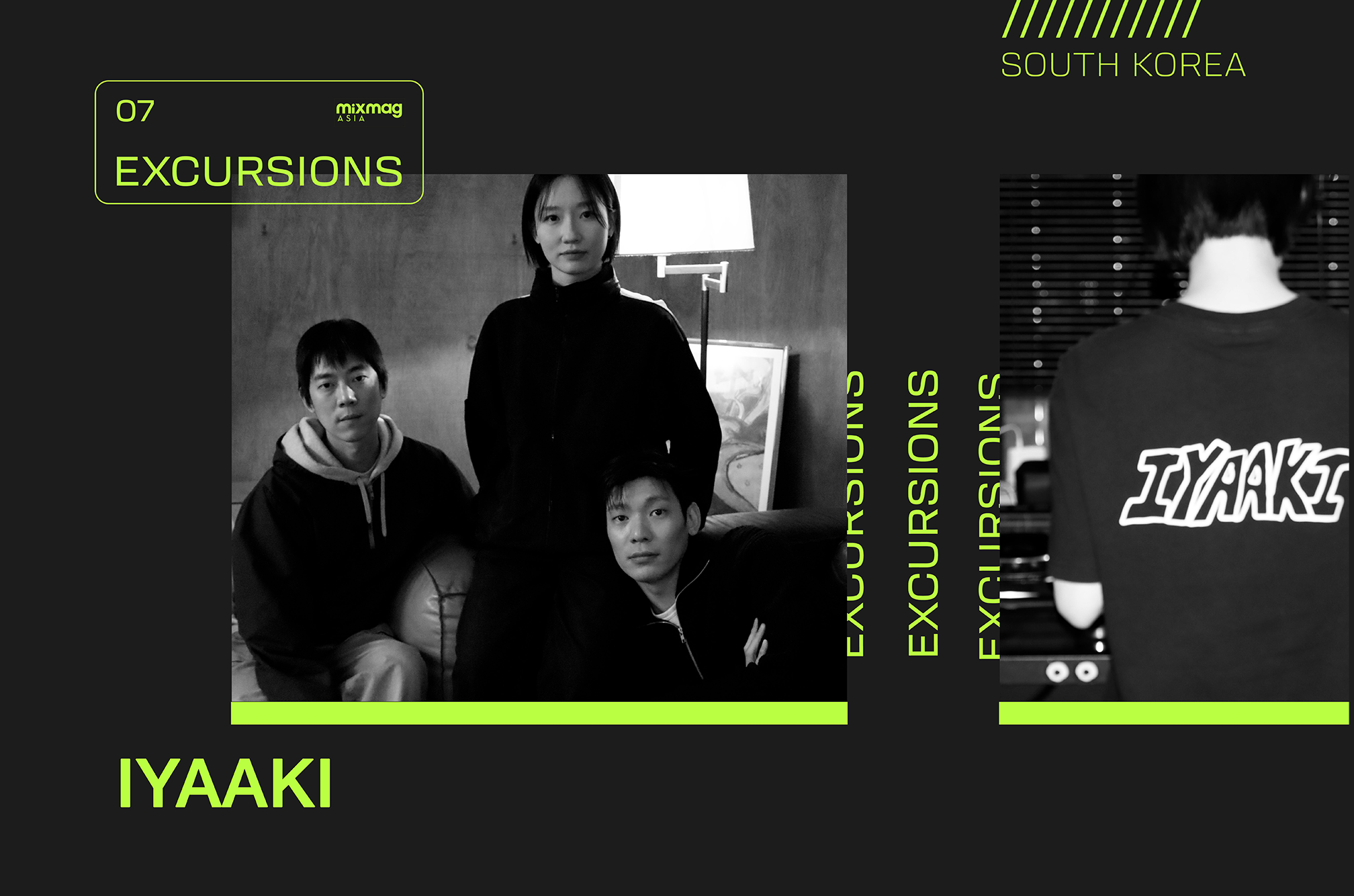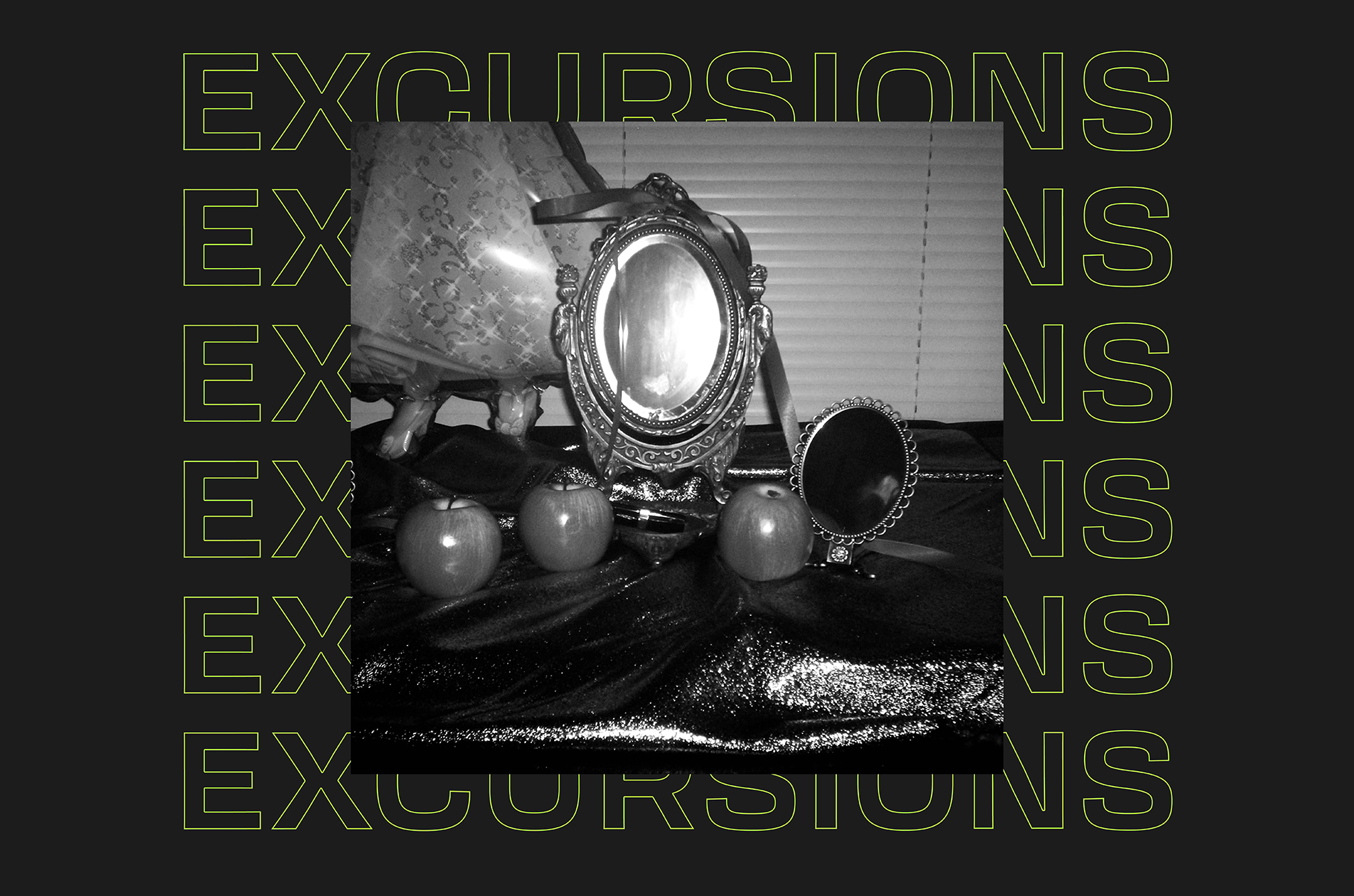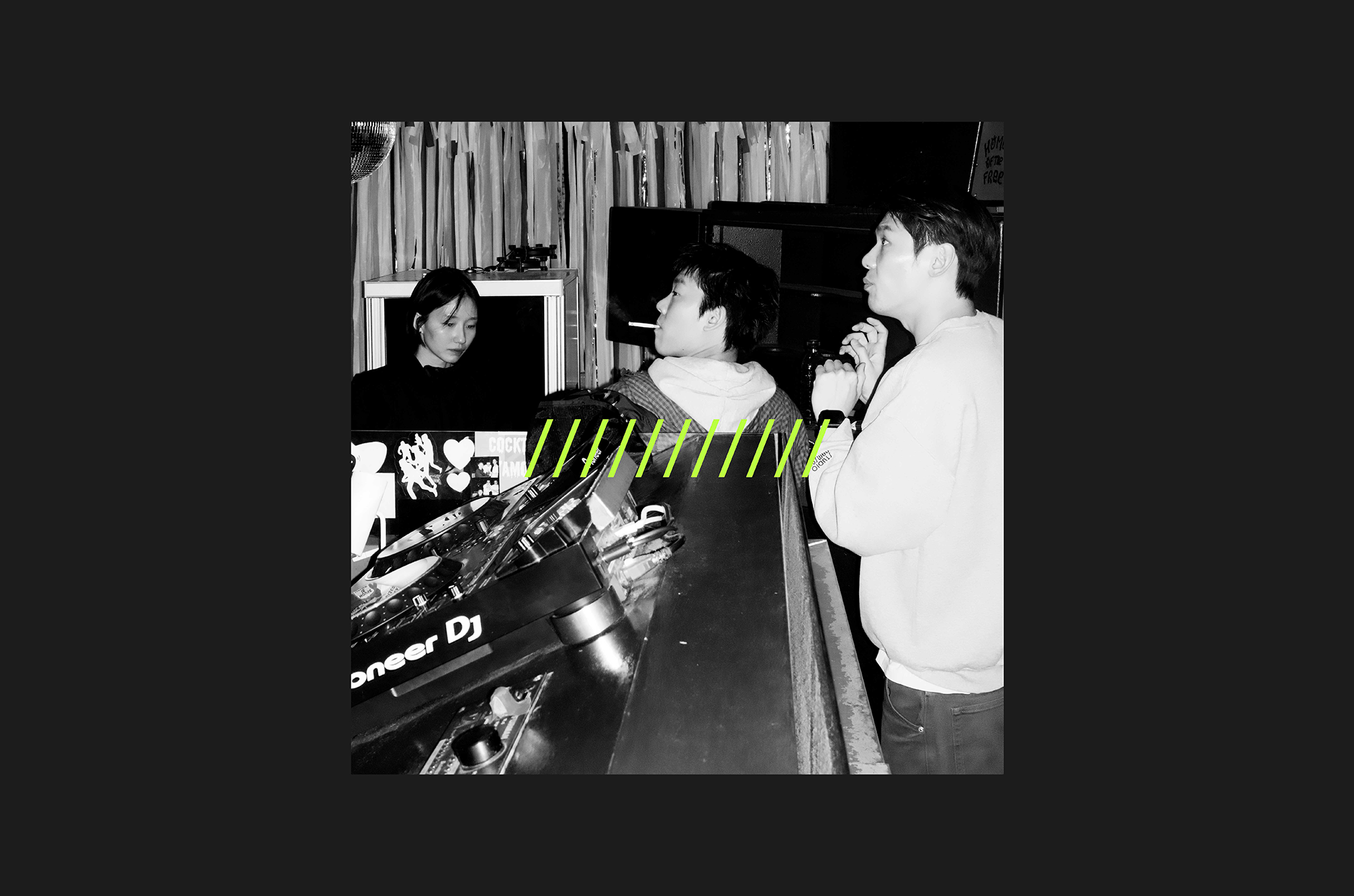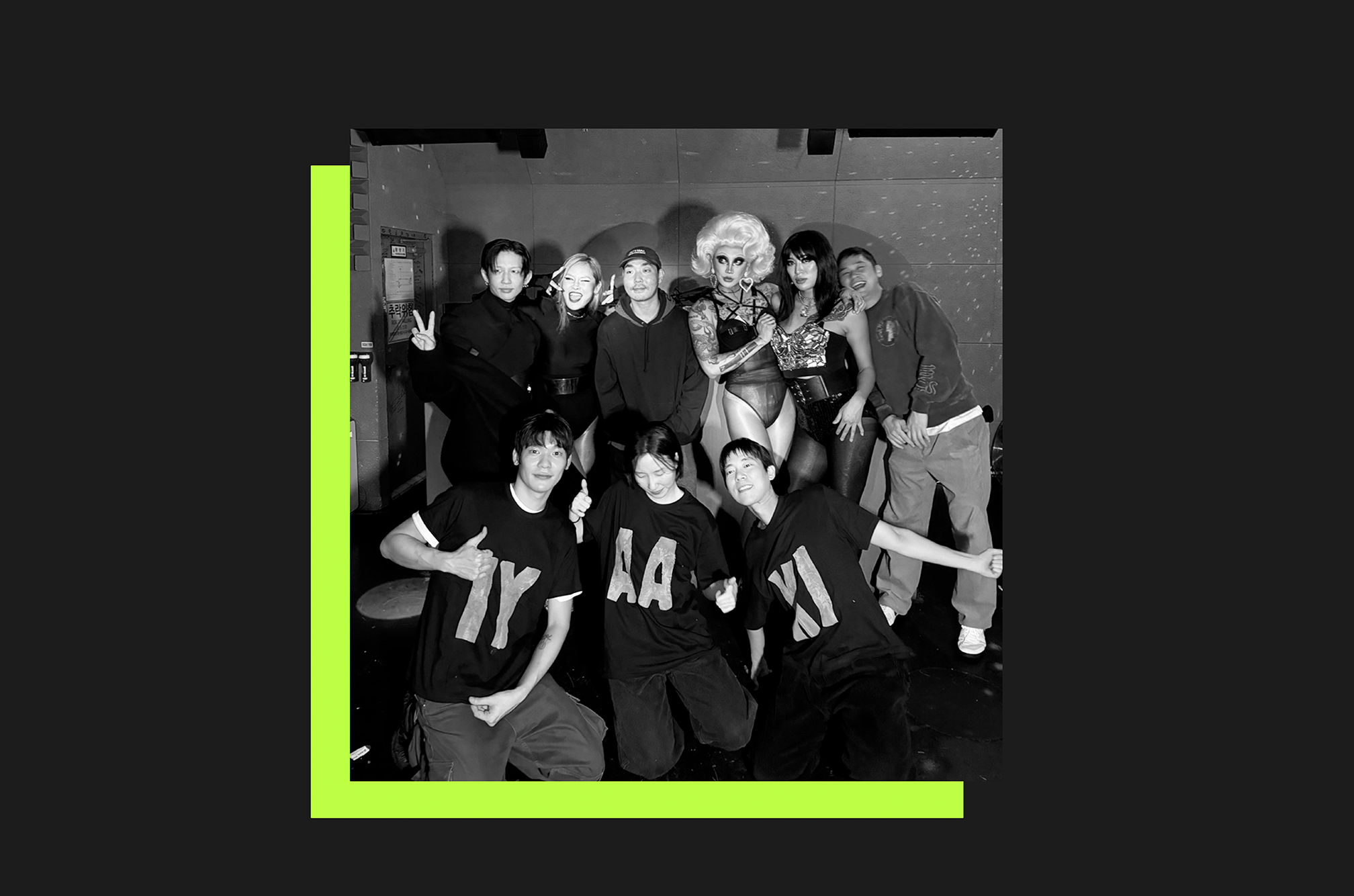 Features
Features
Excursions: IYAAKI is a judgment-free space in Seoul to celebrate culture, identity & queerness
Founded by DJs Hogi, Hyerang, and Jooheon, the event series which just marked its first anniversary creates an environment where diversity thrives on the dancefloor
In a town where tolerance is still considered a work in progress, IYAAKI is currently the party in Seoul where you can find gay club owners mixed with DJs, foreign dancers, and all types of music enthusiasts in one place.
At IYAAKI you can enjoy good music, warm vibes, and the occasional half-naked person dancing next to you—with no judgments
Since its debut, IYAAKI has been a colourful space for fun and exciting LGBTQIA+ guests, including Nana Youngrong Kim, Bori, plus dancers Zeze and Aridongmin and recently celebrated its first anniversary at Nyapi, featuring an out-of-town DJ for the first time, Sivanesh.
Adding some context to the district, "Homo Hill" is the informal name given to a part of Itaewon where many LGBTQIA+ establishments have been based, probably since the Korean War. Conveniently located within walking distance from US-stationed troops, Itaewon has since then become the entertainment district for soldiers and foreigners alike.
However, although Itaewon prides itself on its openness and identity, cultural struggles remain. IYAAKI, a party organised by DJs Hogi, Hyerang, and Jooheon, is an alternative to promote tolerance in a city where individuality is still seen as taboo.
We met with Hyerang, Hogi, and Jooheon to talk about cultural realities and the fun experiences they have witnessed in their one year of hosting this party right before their next take of IYAAKI on February 20 at Nyapi.

How did IYAAKI come to life, and who are its members?
On November 30, 2023, we began our first story at Kunsthaus, a club in Samkagji that sadly no longer exists. Selecting the DJs can perhaps be seen as a coincidence. When Jooheon was invited to perform in Kunsthaus, he invited Hyerang, and Hyerang, who had been discussing with Hogi the idea of hosting LGBTQIA+ friendly parties, invited him (Hogi) to play as well. IYAAKI was born naturally.
IYAAKI is a very unusual name, what does the name stand for and whose idea was it?
The concept “IYAAKI” (fairy tale in Korean) was developed by Hogi and is inspired by childhood fairy tales. The idea behind the name is to help dancers recall their childhood with good music, good energy, freedom, and comfort. Like in a fairy tale world…escaping reality on a Thursday night.
In the case of IYAAKI and the community it seeks to bring together, what is the musical approach or influences?
All three DJs are distinguished by their individuality and styles because they are all active in different music scenes. Jooheon can be found playing all around Itaewon, Hogi is a resident at Public (a gay club) and Hyerang is a resident at Nyapi, but when we are together we seek for our identities and music styles to coexist harmoniously, just like IYAAKI´S values.
That is why, rather than focusing on stereotypical LGBTQIA+ disco or serious house, we aim for a lighthouse sound, one that anyone can enjoy and won’t leave you exhausted even if you stay up all night on a Thursday.

Read this next: Pump up the rainbow: Asia’s queer voices are louder than before
What is one of your most memorable parties of IYAAKI?
One of our most memorable episodes was Body Funk, which featured drag queens Nana Youngrong Kim, Bori, and dancers Zeze and Aridongmin who used to perform at the late Club Trunk. As the performances unfolded and the 'Body Funk' track played, it felt as if we had reclaimed the time we had lost. At that moment, it was as if we were back at Trunk, and everyone became one, fully enjoying the night.
“Better together” is the motto celebrated by IYAAKI in their parties, what does it stand for?
“Better Together” is not just about bringing people together in one place. It’s about creating a space where people from different backgrounds can acknowledge and understand each other’s differences.
Read this next: "Genuinely needed": How WAIFU is revolutionising Tokyo's queer nightlife
Going back to the beginning of IYAAKI, where was the first party held and when did it move to Itaewon?
The first party as we mentioned earlier was held in Samkagji. After COVID-19 and the Itaewon Halloween tragedy, the number of venues where full-time DJs could perform significantly decreased. As a result, many full-time DJs felt socially isolated and lost opportunities to express themselves. This motivated us to create a fun and liberating space for interaction and to build a community where we could share our “IYAAKI.”
However, we didn’t initially expect that this party, IYAAKI, would become an ongoing event. While Itaewon had many lively parties, we wanted to create one with a friendly concept.
Itaewon is historically a place where individuality can be more openly celebrated, what does Itaewon mean for IYAAKI? Is Itaewon crucial for IYAAKI?
While it’s true that Itaewon is currently the place in Seoul where the most diverse people gather, I don’t think IYAAKI is essential to Itaewon, nor is Itaewon essential to IYAAKI.
Itaewon has many great clubs and spaces for experiencing diverse music. If there’s a space where a great party can be held, IYAAKI can happen anywhere. Nonetheless, Itaewon holds great significance for IYAAKI as it has long been a place where people with diverse backgrounds and identities gather, forming a unique culture.

Is there tolerance in Seoul toward LGBTQIA+ communities? Why do you think it is difficult to find LGTQI+-friendly spaces in Seoul?
There are still many prejudices against LGBTQIA+ in various communities. These biases are a primary factor in the lack of safe spaces. Even when community spaces exist, they may foster an intimidating atmosphere for some individuals or create situations where minorities feel compelled to hide their identities. Even though people outwardly say “Let’s unite”, I still see many instances where different clubs or communities do not recognise diversity.
Therefore, it is not just about providing spaces but also creating an environment where people can feel safe and welcomed, which is a challenging reality.
Read this next: Festivals in Asia to look forward to in 2025
The idea of promoting “oneness” in an area like Itaewon is not exclusive of IYAAKI, while acknowledging and respecting other parties that pursue similar objectives, what differentiates IYAAKI?
We don’t think we are different from other parties. All parties aim for “togetherness.” If there’s one difference, it is that we host special parties quarterly, and these parties intend to be more closely aligned with the LGBTQIA+ community. Also, we host parties in venues associated with completely different communities, and our intention is to deliver our message in a soft, non-straightforward manner.
By focusing on venues for different communities, we try to create an inclusive atmosphere where everyone at the party feels welcomed and connected.
To wrap up, you recently celebrated your first anniversary, was it special?
It was one of the biggest events of IYAAKI so far. We invited Sivanesh who, as well as Hyerang, played at (Re)treat in Vietnam, the invitation came from a place of genuine admiration—after seeing his stage at the festival, we were so blown away and wanted to share his music with everyone.
A fun fact about that day is that due to the large number of guests, Hogi started helping at the bar and as expected, got everyone crying of laughter, and drunk. It was one of our funniest parties, and we thank everyone who came to celebrate with us.
Daniela Solano is a freelance writer for Mixmag Asia, follow her on Instagram here.
Cut through the noise—sign up for our weekly Scene Report or follow us on Instagram to get the latest from Asia and the Asian diaspora!


